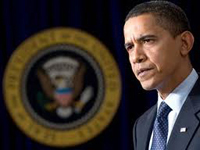MIT: US carbon tax a "win-win-win" for economy, planet and deficit
 The US could tackle its growing deficit without damaging its economy, slashing government spending or raising existing taxes, if it simply introduced a carbon tax.
The US could tackle its growing deficit without damaging its economy, slashing government spending or raising existing taxes, if it simply introduced a carbon tax.That is the stark conclusion of a major new economic study from researchers at the Massachusetts Institute of Technology (MIT) released yesterday, which predicts that a $20 per ton carbon levy would raise $1.5tr in additional tax revenue while resulting in a 20 per cent cut in greenhouse gas emissions by 2050.
Significantly, the report argues that, if revenue raised from the tax is effectively redirected to deliver a mix of tax cuts and the continuation of public services that are under threat from efforts to tackle the US deficit, the new levy would “modestly improve the economy”.
“Congress will face many difficult tradeoffs in stimulating the economy and job growth while reducing the deficit,” said John Reilly, an author of the study and the co-director of MIT’s Joint Program on the Science and Policy of Global Change, in a statement. “But with the carbon tax there are virtually no serious tradeoffs. Our analysis shows the overall economy improves, taxes are lower and pollution emissions are reduced.”
Following last year’s high-profile stand-off between the Obama administration and his Republican opponents in Congress over the vote to raise the US debt ceiling, both the Democrats and the GOP have been under mounting pressure to come up with a credible strategy for tackling the deficit.
However, the stand-off has continued with Republicans opposing any plan that incorporates an increase in taxes or the lapsing of Bush era tax cuts and instead arguing for deep cuts in government spending. Meanwhile, Democrats have insisted the deficit be tackled through a mix of spending cuts and tax increases.
The MIT report argues that this stand-off could be ended through the adoption of a carbon tax that would not only help reduce the deficit, but also deliver an economic boost by funding tax cuts, allowing for the continuation of spending on social programmes, and driving investment in clean technologies.
“Whether we cut taxes or maintain spending for social programs, the economy will be better off with the carbon tax than if we have to keep other taxes high or cut programs to rein in the deficit,” Reilly added.
“In shifting the market through a tax on emissions rather than through tax credits for renewable sources, the nation would be raising revenue rather than spending it. This contributes to the win-win-win result we expected for the nation’s economy and environment.”
The Republican leadership has already ruled out supporting any form of carbon tax, but interest in the concept has been revived in recent months with former Republican Congressmen Sherwood Boehlert and Wayne Gilchrest joining wiith Congressional Democrats Henry Waxman and Ed Markey to support carbon tax proposals in a Washington Post opinion piece that ran earlier this year.
Meanwhile, former Republican Congressman Bob Inglis launched a new think tank this summer committed to promoting the carbon tax concept, and even the right-leaning American Enterprise Institute has held an event on the topic.
However, the concept is unlikely to get much of an airing during the presidential race with environmental issues expected to be framed through the competing energy strategies put forward by President Obama and challenger Mitt Romney.
The Obama campaign received a boost yesterday as a new Washington Post/ABC News poll gave the president a clear lead among voters on energy policy. The poll revealed 49 per cent of voters favour the president to do a better job on energy policy, compared to 41 per cent who favoured Romney.
The results come as a blow to Romney, who last week unveiled a new energy strategy that is almost entirely focused on increasing US fossil fuel production and makes no mention of climate change impacts. Although, the poll also showed that overall Romney enjoys a narrow 47-46 per cent lead over Obama among registered voters.
The fight over energy policy will get another airing this week as Republicans prepare to kick off their convention in Tampa, Florida, despite the threat posed by Tropical Storm Isaac.
The storm could also present political problems for Obama as oil prices have risen in response to the closure of a number of drilling platforms in the path of the storm, raising the prospect of higher gasoline prices for voters in the run up to the November election.
You can return to the main Market News page, or press the Back button on your browser.

